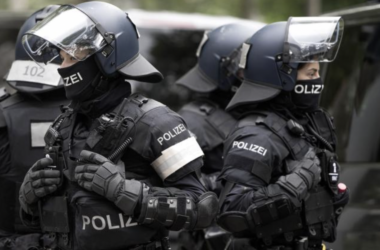Local politicians and police unions in Padua are calling for military intervention after a Nigerian migrant attacked two officers with an axe early Monday morning. The 32-year-old man, an asylum seeker whose application was rejected, was arrested and is now under hospital guard after being shot in the legs by police.
The incident unfolded around 4 a.m. on Via Trieste when residents reported seeing the man, armed with an axe. Despite attempts by police to de-escalate using tasers and pepper spray, the situation escalated. At 5 a.m., the man charged at officers, prompting one officer to fire in self-defense. The attacker narrowly missed one officer and trapped another against a wall before being subdued. He now faces charges of attempted double murder.
This attack has reignited concerns about public safety in Padua. Elisa Cavinato, a regional councilor for Liga Veneta, criticized the city, calling it the “Wild West” at night, and demanded the army be deployed. “The gravity of the situation in Padua requires the deployment of the army,” she stated.
Regional President Luca Zaia praised the police’s professionalism but emphasized the seriousness of the attack, noting the assailant’s history of threats and resistance. Police unions have raised alarms about the rising violence, with Maurizio Ferrara, head of the FSP Police Union in Veneto, highlighting a “crescendo of hatred and contempt” toward law enforcement. He pointed out that officers often lack the proper resources to handle the escalating violence.
Concerns about safety have extended to public transport workers as well, following recent attacks, including one in Genoa where a train conductor was stabbed by two migrants. Mirco Pesavento, a police union leader, noted that patrols in Padua are becoming increasingly dangerous, citing a recent incident where officers were surrounded and injured by a mob of 50 people. He called for better resources and quicker expulsions of criminal undocumented migrants.
Domenico Pianese, from the Coisp police union, added that political unity is essential to address the growing challenges faced by officers. “It’s no longer tolerable that those risking their lives to protect others must do so in increasingly difficult conditions,” he said.




